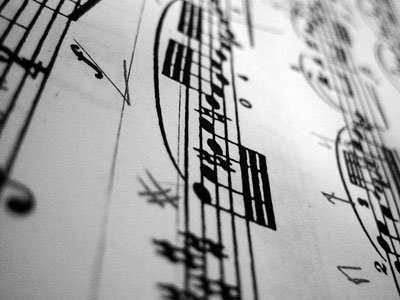All Nonfiction
- Bullying
- Books
- Academic
- Author Interviews
- Celebrity interviews
- College Articles
- College Essays
- Educator of the Year
- Heroes
- Interviews
- Memoir
- Personal Experience
- Sports
- Travel & Culture
All Opinions
- Bullying
- Current Events / Politics
- Discrimination
- Drugs / Alcohol / Smoking
- Entertainment / Celebrities
- Environment
- Love / Relationships
- Movies / Music / TV
- Pop Culture / Trends
- School / College
- Social Issues / Civics
- Spirituality / Religion
- Sports / Hobbies
All Hot Topics
- Bullying
- Community Service
- Environment
- Health
- Letters to the Editor
- Pride & Prejudice
- What Matters
- Back
Summer Guide
- Program Links
- Program Reviews
- Back
College Guide
- College Links
- College Reviews
- College Essays
- College Articles
- Back
The Language of Jazz
Music’s evolution is interesting. I am a personal lover of music (as my CD collection is in the hundreds). I take music in high school, 3 classes of it. It is a really fun and challenging way to express yourself. Probably one of the hardest music classes I am taking right now is Jazz Band. I’m in the top tier, the “A” band, so the expectations are through the roof insane. But as I go to listen to some Jazz, maybe to learn a solo or just for enjoyment, a thought always buzzes in my head. This music today feels like an antique. What’s the point of it? Sure, antique collectors love old things, but that does not mean the general population likes them as well. Why should one do Jazz at all if in the end it seems as thought a hobby?
To me, Jazz is more than that. Jazz is a language, a math, and an art. Jazz is actually a great learning tool for educational purposes. Most people wouldn’t see this by just listening to a Jazz tune, but once you get involved in a music program at your high school or outside of the work place you will discover its immense complexity.
It is utterly useless to explain how complex it is in a single opinion article, however some metaphors could be used. Playing the actual song is like learning a speech you are going to give in front of an audience. You look at the notes on the page and you learn what they are and what they sound like. Then, you learn how to articulate these notes almost like learning how to emphasize different words, such as meters in poetry. These articulations come with different markings. This is why Jazz is like a language. Not only do you have notes on music paper, but also you have certain markings telling you how to pronounce and stylize the language of Jazz.
Soloing is taking it to the next level. You have nothing to look at but the language you have learned. When we talk to people, we just talk. We don’t need to look at a book or a piece of manuscript to have a conversation with one another. We form ideas and then verbally tell them to each other. Jazz is very much the same except you now have to speak the language of Jazz instead of English. It is just like starting any language. Like how we started learning English with letters and then simple words, in Jazz you learn notes, then scales, then forms, then chords, and so forth. This process is strenuous and takes a lot of time, but the end result is brilliant music.
Music in general is like learning another language and Jazz is a very fun way to learn it. This is why art programs should be of importance in schools as they further expand the students mind. Jazz involves critical thinking and a lot of practicing; it is no laughing matter. Music is a lot harder than it looks.
So even though Jazz may appear to be an antique in popular music today, it is of prominent importance in the schools. High school Jazz Bands have plenty of competitions nationwide now and I hope to see this bright future for the genre expand. Jazz is a great way to enhance learning skills by the use of critical thinking.
And even if Jazz isn’t your thing, music programs offer so much more. Support your schools music program!

Similar Articles
JOIN THE DISCUSSION
This article has 0 comments.
